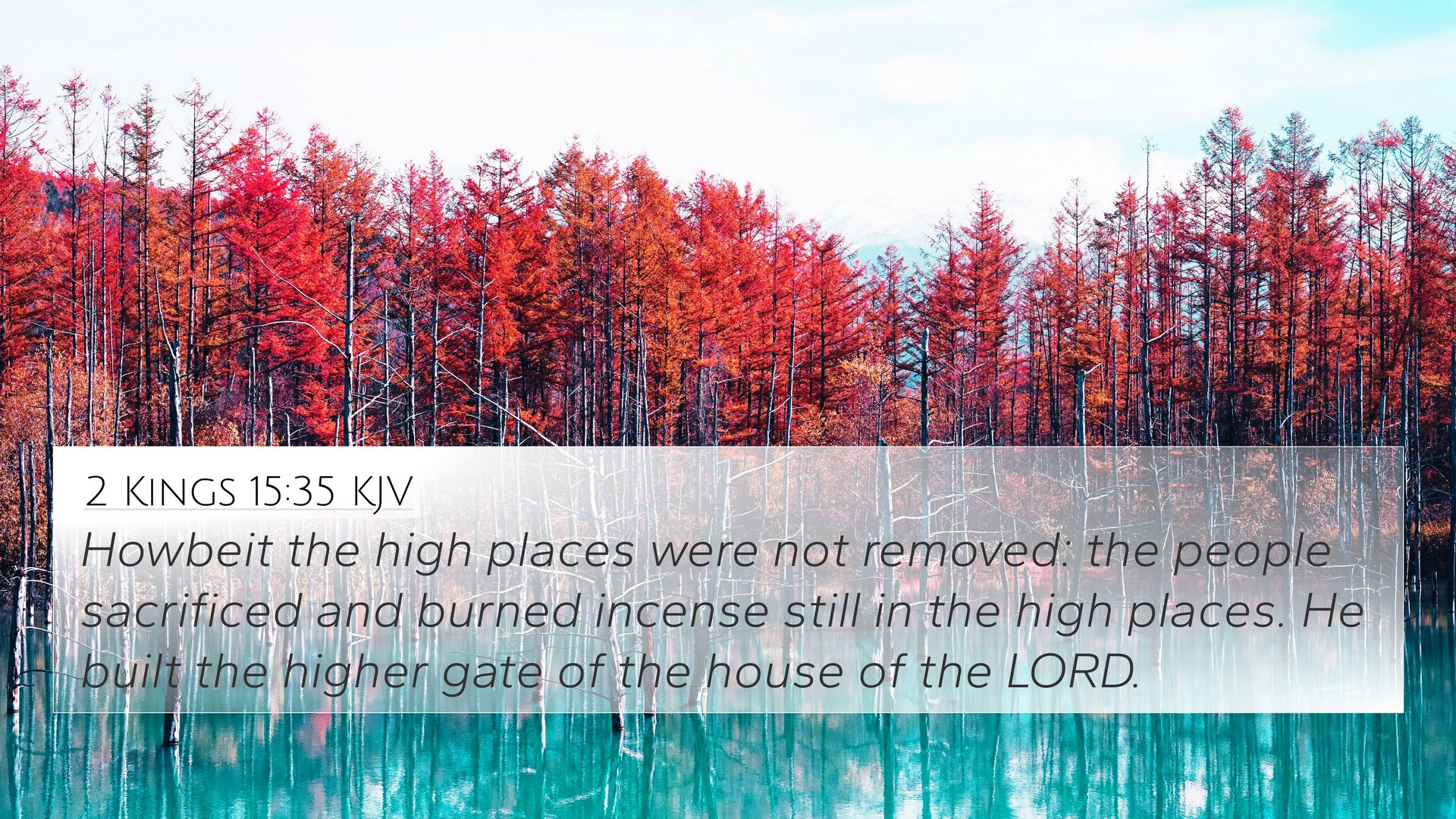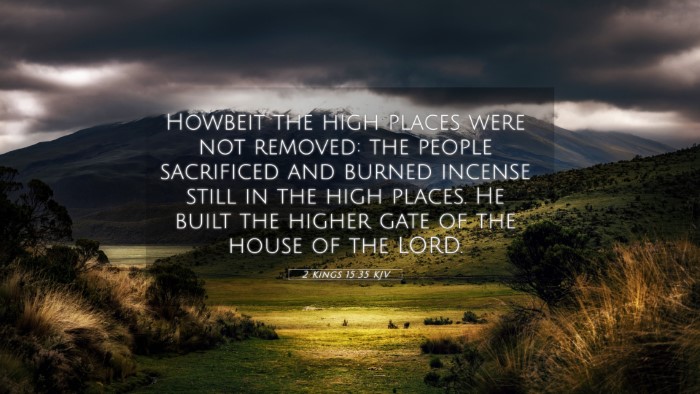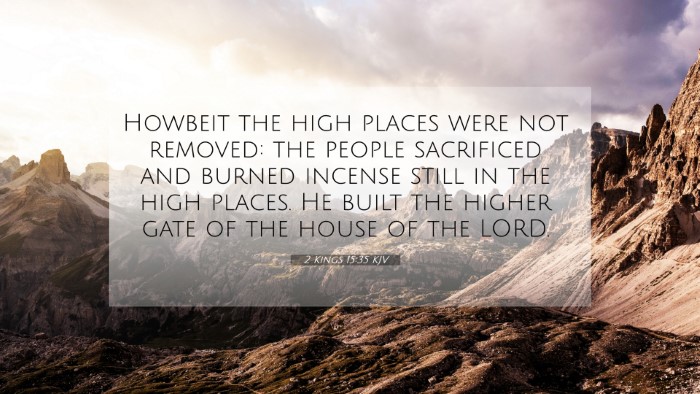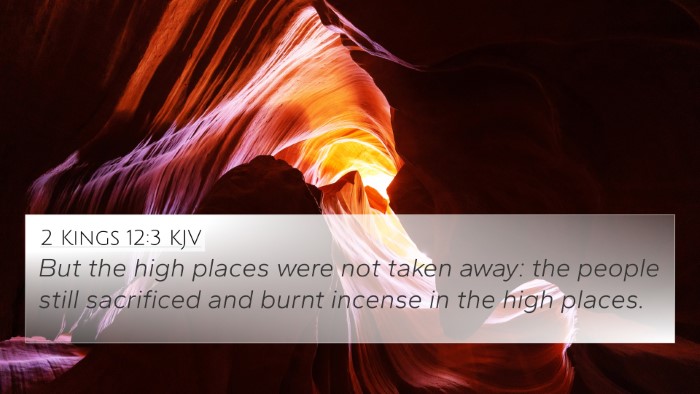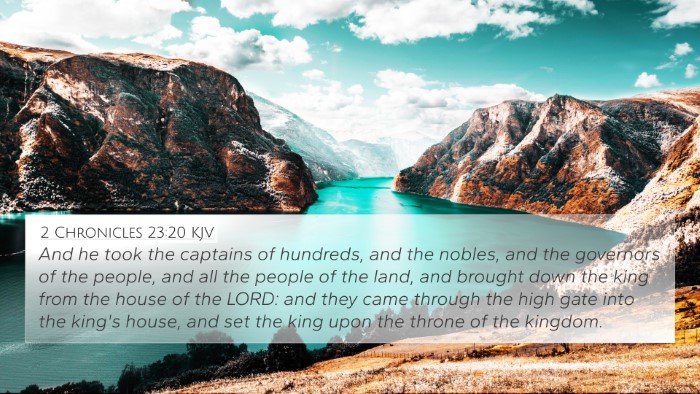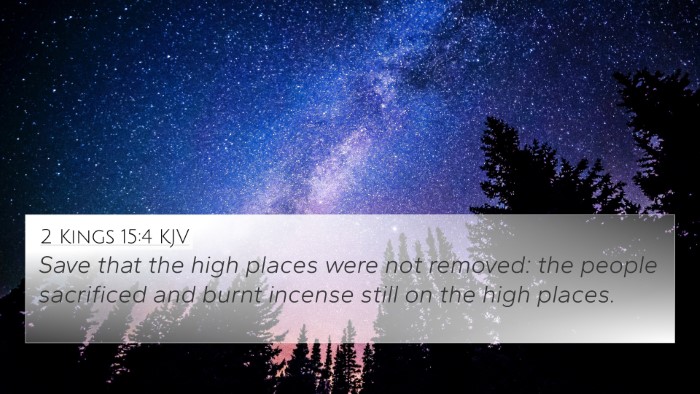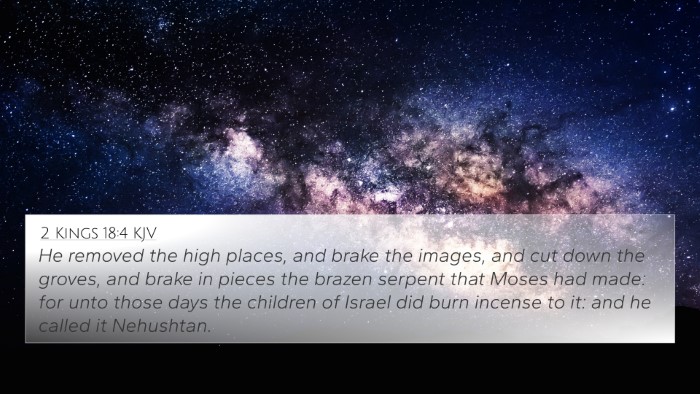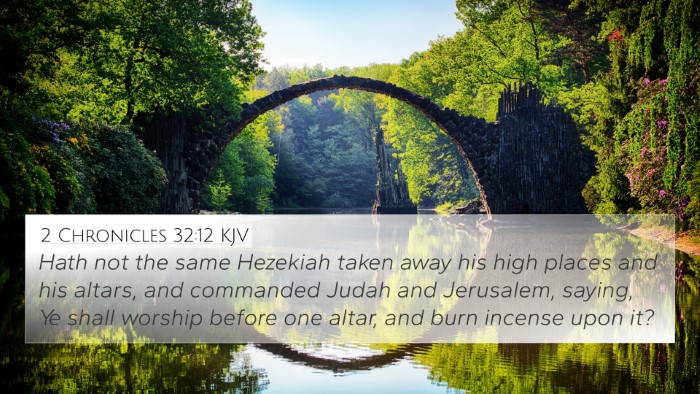Understanding 2 Kings 15:35
Verse Context: 2 Kings 15:35 states, “But the high places were not removed: the people still sacrificed and burnt incense in the high places. He built the upper gate of the house of the LORD.” This verse speaks to the actions of King Jotham during his reign in Judah, highlighting both his achievements and the persistent idolatry among the people.
Summary of 2 Kings 15:35
This verse provides insight into King Jotham's reign, emphasizing his partial reforms regarding worship practices in Israel. Although he undertook significant building projects, including improvements to the temple, the high places remained, indicating a failure to eliminate idolatry completely.
Commentary Insights
- Matthew Henry: Henry notes that King Jotham was generally a good king who honored God, but his inability to remove high places represents the ongoing struggle with idolatry that plagued Israel. This reflects a time when God’s people were often divided in their devotion.
- Albert Barnes: Barnes points out that Jotham’s building projects—including the upper gate of the temple—indicate a desire for restoring proper worship. However, the failure to abolish high places signifies the incomplete nature of his reforms, highlighting a crucial aspect of leadership in maintaining true worship of Yahweh.
- Adam Clarke: Clarke elaborates on the implications of high places in worship, suggesting that they symbolized spiritual compromise. Jotham’s era exemplifies a tension between civil authority and divine expectation, illustrating the need for full adherence to God's commands regarding worship.
Thematic Analysis
The events surrounding Jotham’s reign reflect broader themes in scripture regarding leadership, purity of worship, and the consequences of partial obedience to God. This verse serves as a reminder of the challenges leaders face when attempting to guide their people towards faithfulness.
Cross-References
Several Bible verses are related to the themes presented in 2 Kings 15:35:
- 2 Kings 12:3: Discusses Joash's similar challenges with high places.
- 2 Chronicles 27:2: Provides further insight into Jotham’s character and deeds.
- 1 Kings 15:14: Highlights Asa’s efforts to remove high places and contrasts with Jotham's actions.
- Deuteronomy 12:2-4: God’s command against high places reinforces the expectations of worship.
- Jeremiah 7:31: Offers a prophetic condemnation of the practices associated with high places, emphasizing their disapproved nature.
- Isaiah 1:11-13: Points to the futility of sacrifices offered in disobedience, which correlates with high place worship.
- Hosea 4:13: Mentions the idolatry associated with high places, illustrating the ongoing spiritual struggle.
Connecting Verses for Deeper Study
To explore the connections between this verse and others, consider the following:
- Exploring 1 Kings 12:31 describes the establishment of high places.
- Referencing 2 Chronicles 34:3-4 illustrates reformative efforts in subsequent kings.
- Comparative reflections with Romans 12:1 about true worship may illuminate contemporary applications.
- Hebrews 13:15 discusses sacrifices of praise relevant to our worship practices.
Conclusion
2 Kings 15:35 offers profound insights into leadership, worship, and the importance of genuine fidelity to God's commands. The high places, representing spiritual compromise, serve as a reminder of the need for complete dedication to God in both personal and communal worship contexts.
For those engaged in cross-referencing Biblical texts, this verse stands as a significant point in understanding how leaders and their people navigate faithfulness and idolatry, providing ample opportunity for comparative Bible verse analysis.
